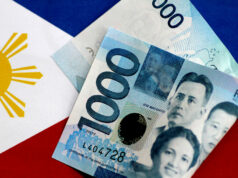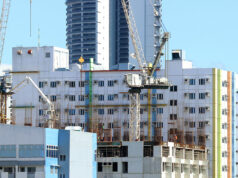Gov’t makes full award of T-bills ahead of reserve ratio reductions

THE GOVERNMENT fully awarded the Treasury bills (T-bill) it auctioned off on Monday, with yields declining across all tenors as market participants priced in ongoing trade tensions between China and the United States as well as the first tranche of reductions to banks’ reserve requirement ratios (RRR).
The Bureau of the Treasury (BTr) borrowed P15 billion as planned at its T-bills auction yesterday. Total bids from banks and other financial institutions surged to P47.8 billion, more than thrice the amount the Treasury wanted to borrow.
Broken down, the government borrowed P4 billion as programmed via the 91-day tenor yesterday as bids amounted to P10.562 billion. The average rate declined 10.8 basis points (bp) to 5.15% from the 5.258% logged in the previous auction.
The Treasury also made a full award of the 182-day papers as it accepted P5 billion as planned out of offers totalling P11.418 billion. The average yield slipped 11 bps to 5.59% from last week’s 5.7%.
For the 364-day T-bills, the BTr borrowed the programmed P6 billion out of the P25.896 billion tendered by participants. Its average yield went down by 18.6 bps to 5.683%% from the 5.869% tallied in the previous offering.
At the secondary market yesterday, the three-month, six-month and one-year debt papers were quoted at 5.338%, 5.69%, and 5.875% yesterday, respectively.
Following the auction, National Treasurer Rosalia V. De Leon said the BTr saw “very good” results at yesterday’s auction given strong demand from investors.
“We’ve seen the rates coming down by more than 10 bps. The case of the one-year even is around short of 20 bps [lower] than the previous auction and very much also lower than the existing secondary rates,” she told reporters on Monday.
“Of course, coming out of the trade tensions, so expectations are that growth would be softer. It’s also validated by the recent data coming out of the PMI (purchasing managers’ index), so it’s lower than expectations given the trade tensions,” Ms. De Leon added.
Financial data firm IHS Markit reported last Thursday the US manufacturing PMI stood at a near-decade low of 50.6 in May. Market players took the data as a sign of a slowdown in US economy brought by the trade spat between Washington and Beijing.
On the local front, Ms. De Leon added that the RRR cut for banks was also factored in by the market.
The Bangko Sentral ng Pilipinas will slash reserve requirements of lenders by a percentage point effective May 31 to 17% for universal and commercial banks, to 7% for thrift banks, and to 4% for rural and cooperative banks.
A percentage point cut in big banks’ RRR will likely unleash P90-100 billion into the financial system, while another P22 billion is seen to be released due to a 100-basis-point cut in the reserve ratios of smaller lenders.
“We see that there will really be abundant liquidity in the market, so first instance of course is to park into safe haven,” Ms. De Leon said.
“Everybody is going into safe haven, given that expectations about performance of the stock market. What’s the safe haven? Of course government securities.”
Sought for comment, Robinsons Bank Corp. trader Kevin S. Palma said the auction results were within expectations.
“No surprises here. Yields continue to trend lower as investors locked in rates amid a favorable outlook for the Philippine economy which was triggered by decisive central bank actions these past few weeks,” Mr. Palma said in a mobile message.
“Investors continue to flock short-term assets as slew of weak economic data from the US last week spurred worries that its trade war with China maybe hurting the US economy.”
The government plans to borrow P315 billion from the domestic market this quarter, broken down into P195 billion in T-bills and P120 billion in T-bonds.
TOKYO ROAD SHOW
Meanwhile, the government is planning to conduct a non-deal road show in Tokyo next month, ahead of its possible return to the Japanese bond market in the second half of the year.
Ms. De Leon said yesterday the government might conduct a non-deal road show in the Japanese capital “around third week of June” in preparation of another yen-denominated “samurai” bond issuance.
“We might be having a non-deal road show because there’s a sequence of things you have to do before you go and trigger the issue in the samurai market,” she said.
Ms. De Leon said the government will likely offer debt papers amounting to less than $1 billion in yen equivalent. This will be lower than the $1.39 billion (154.2 billion yen) raised last year via an offer of three-, five- and 10-year samurai bonds.
“Following the EDC (Economic Development Cluster) meeting, we expect that the infra[structure] agencies will also be delivering in terms of the implementation of the projects. That would also be requiring funding for the stronger implementation during the next quarters this year,” Ms. De Leon said.
“We would have to calibrate our spending to ensure that we will be able to provide the resources and at the same time we will be able to cover the requirements going into next year.”
The Treasury has tapped Mizuho Bank Ltd., The Daiwa Bank Ltd., Nomura, Sumitomo Mitsui Banking Corp. and the Mitsubishi UFJ Group to act as bookrunners for the posible non-deal road show next month.
The government plans to borrow P1.189 trillion this year from local and foreign sources to fund its budget deficit, which is expected to widen to as much as 3.2% of the country’s gross domestic product.
Earlier this month, the government raised 2.5 billion renminbi ($363.3 million) from its sale of three-year yuan-denominated “panda” bonds, days after it issued €750 million worth of eight-year global bonds in Europe. — Karl Angelo N. Vidal



